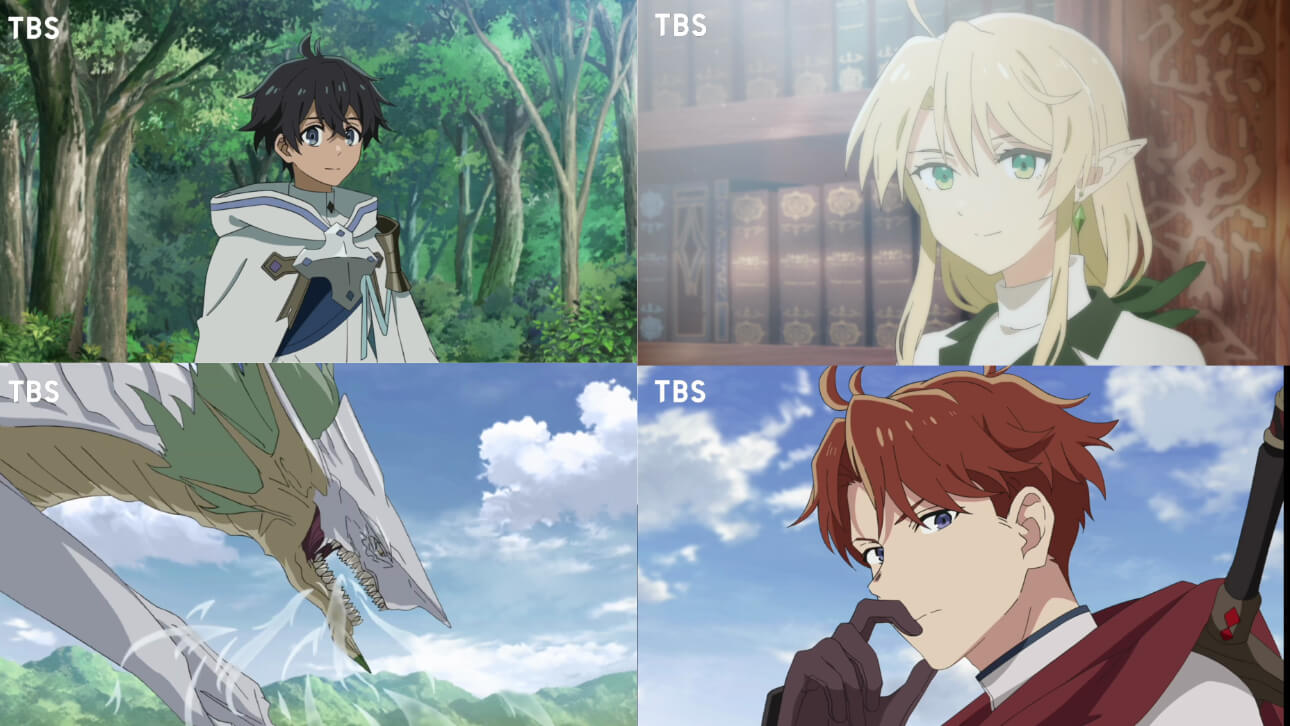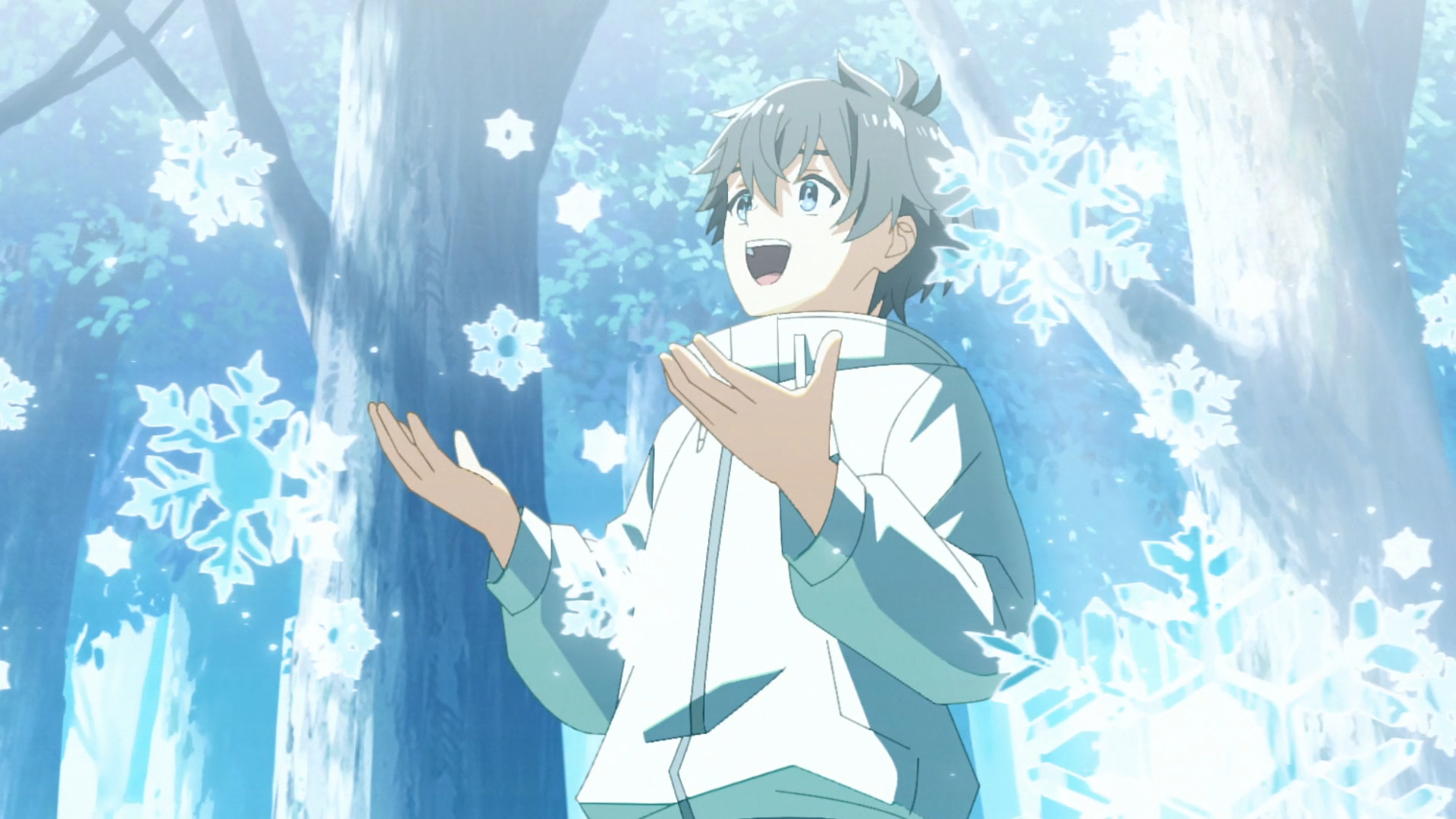Rating: 8.2/10 — A thoughtfully crafted isekai that proves character development trumps spectacle
Why This Isekai Deserves Your Attention
Imagine dying at 20, waking in a fantasy world, and discovering your grand reward is the ability to conjure... a single cup of water. Then you're abandoned in a monster-infested wilderness with nothing but a knife, some food, and a shack. That's Ryo Mihara's reality in The Water Magician, and it's exactly what makes this 2025 anime so refreshingly different from the isekai saturation flooding streaming platforms.
The Water Magician (Mizuzokusei no Mahōtsukai) arrived in July 2025 with minimal fanfare, yet it's quietly become one of the year's most discussed hidden gems among discerning anime fans. While it lacks the viral moments or streaming hype of mainstream titles, this series has earned genuine appreciation for doing something increasingly rare in isekai: respecting the audience's intelligence and taking storytelling seriously.
What Makes The Plot Actually Compelling
The premise seems straightforward on the surface—another reincarnation story, another magic system, another protagonist in an unfamiliar world. But The Water Magician subverts virtually every expectation the isekai genre has trained us to have.
The Setup: Ryo Mihara dies and reincarnates into the world of Phi with water magic and an unusual hidden trait—eternal youth. Here's the crucial difference from typical isekai: he doesn't start powerful. He can barely summon water. The series dedicates substantial runtime to showing his first 20 years of survival in isolation, gradually developing his magical abilities through experimentation, failure, and persistent effort.
This isn't rushed exposition delivered through exposition dumps or convenient montages. The anime genuinely invests in showing us Ryo's adaptation process—how he learns to hunt, fight monsters, build shelter, and ultimately master water magic through methodical application and creative problem-solving.
The Turning Point: When Ryo finally meets Abel, a genius knight, his carefully constructed hermit existence shatters. Suddenly thrust into magical society's political landscape, Ryo must navigate conflicts, conspiracies, and responsibilities he never sought. This pivot transforms the series from survival story into something more nuanced and ambitious.
Characters That Feel Like Real People

Ryo Mihara: The Reluctant Legend
Voiced by Ayumu Murase (Japanese) and Dallas Reid (English), Ryo is the series' emotional anchor. His characterization breaks the typical protagonist mold—he's not driven by ambition, vengeance, or a desire to become strong. He just wants peace.
This fundamental difference shapes everything about how the story unfolds. When Ryo develops incredible power, it doesn't feel like wish fulfillment because he never wished for it. His legendary status is something that happens to him, not something he pursues. This creates genuine dramatic tension about how he'll handle responsibility he actively resists.
The series excels at showing his magical progression authentically. We see him experimenting with water manipulation, discovering temperature control, mastering pressure techniques, and eventually developing sophisticated applications. Each breakthrough feels earned through visible effort rather than granted through convenient plot devices.
Abel: The Dynamic Catalyst
While details remain guarded to avoid spoilers, Abel represents the bridge between Ryo's isolated existence and wider magical society. This character fundamentally reshapes the narrative trajectory, introducing moral complexity that elevates the story beyond simplistic good-versus-evil frameworks.
Supporting Cast: Voice actors like Kazuki Ura and Kaori Ishihara anchor a supporting cast that gradually expands Ryo's world. The adaptation maintains the source material's careful character introduction approach, introducing new personalities at a measured pace rather than overwhelming viewers with a bloated ensemble cast.
Why The Magic System Actually Works
Most isekai magic feels arbitrary—powers activate when convenient, scale mysteriously, and follow no logical progression. The Water Magician takes a fundamentally different approach.
Ryo's water magic follows genuine scientific logic. He begins with basic manipulation, progresses to temperature variation, masters pressure control, and eventually develops complex techniques that combine multiple principles. When he discovers new applications, we witness his thought process, his experiments, and the gradual mastery that follows.
This attention to magical progression makes his eventual legendary status feel genuinely deserved rather than narratively convenient. Watching someone become powerful through logical steps is inherently more satisfying than watching them stumble into overpowered abilities.
Authenticity Over Recognition
Produced by Typhoon Graphics and Wonderland (studios that prioritize quality over mainstream visibility), The Water Magician features direction by Hideyuki Satake, character design by Yūka Kozutsumi, and music by Akira Kosemura. While these names may not carry household recognition, they've created something unmistakably well-crafted.
Visual Storytelling: The animation deliberately balances character detail with expansive world-building. Early wilderness episodes showcase environmental variety and monster design that communicates Ryo's isolation through visual language. The water magic effects particularly stand out—techniques evolve visually alongside Ryo's abilities, progressing from tentative, small-scale manipulation to confident, creative applications.
Audio Design: Kosemura's score complements the series' contemplative pacing while building genuine tension during action sequences. Water magic combat generates distinctive sonic profiles that help distinguish different techniques and applications.
Deeper Themes Worth Discussing

The Value of Patient Development
In an entertainment landscape obsessed with instant gratification, The Water Magician argues something radical: mastery takes time. Ryo's 20-year journey from barely surviving to legendary status becomes a meditation on how genuine expertise develops through consistent effort, repeated failure, and gradual adaptation. This thematic core resonates particularly with viewers tired of power fantasy wish fulfillment.
Reluctant Heroism and Unwanted Responsibility
Ryo never sought importance. He wanted solitude. The series explores how external circumstances and personal growth can thrust individuals into roles they actively resist, and how one maintains core values while navigating transformation. This creates genuine character conflict beyond typical hero's journey narratives.
Isolation's Psychological Cost
The wilderness years weren't merely physical survival—they were profound psychological isolation. The series subtly examines how decades of solitude shape worldview, social development, and emotional capacity. When Ryo integrates into magical society, his social awkwardness and perspective shifts feel authentic rather than played for comedic effect.
Power Without Purpose
As Ryo becomes increasingly powerful, the series questions what power actually means without external direction. His reluctance to leverage his abilities for personal gain or glory creates moral tension absent from typical isekai protagonists.
Story Progression That Rewards Attention
The early wilderness arc establishes the series' foundation. Rather than rushing toward "real" plot, these episodes build genuine investment in Ryo's character through showing his daily struggles, small victories, and gradual adaptation.
The Abel encounter arc fundamentally transforms the narrative, introducing political intrigue and moral complexity that elevates the story beyond simple survival dynamics.
The magical society integration arc explores fame, responsibility, and maintaining personal values amid external expectations—themes that deepen rather than diminish as the series progresses.
Reception and Fan Conversation
Currently holding a 7.1 IMDb rating, The Water Magician has garnered genuinely enthusiastic responses from audiences who appreciate character-driven storytelling. Critics praise its patient character development and unique magical progression approach.
However, some reviewers note that deliberately slow pacing may alienate viewers accustomed to action-heavy isekai. This isn't a weakness—it's intentional design. The series isn't attempting to appeal to everyone, which is precisely why it appeals so deeply to its intended audience.
Who Should Actually Watch This
Watch if you enjoy:
Character-driven narratives over action spectacle
Realistic magical progression and development systems
Isekai that actively subvert power fantasy tropes
Series that reward patience and careful attention
Protagonists who actively resist the "chosen one" archetype
Consider skipping if you prefer:
Fast-paced action from episode one
Immediately overpowered protagonists
Romance-heavy fantasy narratives
Comedic or lighthearted adventure stories
Status screens and game-like mechanics
What Genuinely Sets This Apart
The isekai landscape is saturated with premises, but The Water Magician distinguishes itself through restraint. It refuses to rush. Rather than rapidly escalating Ryo's power level, it documents the actual journey—every struggle, every small victory, every moment of genuine doubt and authentic growth.
The series also avoids predictable isekai scaffolding: no immediate harem, no convenient game interfaces, no plot armor saving protagonists from consequences. Ryo survives through intelligence, persistence, and authentic character development.
The world of Phi feels lived-in rather than constructed specifically to serve plot convenience. NPCs have agency, conflicts have legitimate stakes, and outcomes genuinely matter.
Final Verdict: A Hidden Gem That Respects Your Time
The Water Magician won't trend on social media. It won't generate viral fan art or casual viewing moments. But for audiences willing to invest in thoughtful pacing and character-focused storytelling, it offers something increasingly precious: genuine character development earned through visible struggle, magical progression that feels logical and earned, and a world that breathes authenticity.
The series essentially answers the question: "What if an isekai protagonist actually had to work to become legendary?" The answer turns out to be compelling, satisfying, and thoroughly rewarding.
Give it three episodes to find its rhythm. If the quiet intensity of Ryo's early struggles hasn't captured your interest by then, this series probably isn't for you. But if you find yourself genuinely curious about his next small victory, about what new water magic application he'll discover next, about how he'll navigate magical society—you've found a uniquely satisfying anime experience that stands apart from the isekai crowd.
In 2025's oversaturated isekai landscape, The Water Magician proves that patience, thoughtful characterization, and earned progression remain powerfully engaging storytelling approaches.






